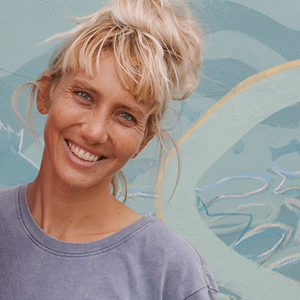Emi Koch
Co-Founder, Coast 2 Coast
Peru

A former professional surfer, Emi is a social ecologist, Fulbright Fellow, National Geographic Explorer, and a WISE Emerging Leader (2023). Emi utilizes community-based participatory research approaches to understand the impacts of fisheries scarcity on fishing communities’ well-being and resilience, focusing on youth and rural education’s role in constructing optimistic futures. Emi is the co-founder of Coast 2 Coast, a Peruvian nonprofit weaving investigation with imagination to engage learners and educators in fishing villages to explore their built and natural communities.


